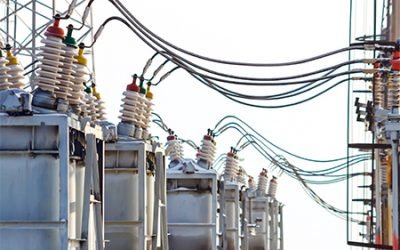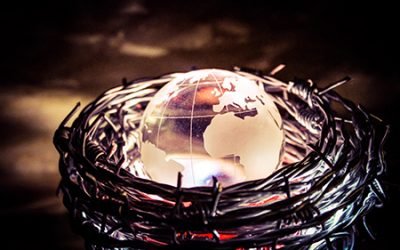Recently, I had the privilege to attend and present at the Greentech Festival, an excellent event in the realm of sustainability. This influential gathering left a profound impact, and I am delighted to share a comprehensive analysis of my experiences.
The Greentech Festival was a vibrant hub of activity, pulsating with the energy of engaged participants. With 14,000 visitors, 350 speakers across five stages, and 200 exhibitors, the event was a melting pot of diverse stakeholders, fostering an environment ripe for meaningful dialogue and collaboration.
A notable feature of the Greentech Festival was its exhaustive exploration of sustainability issues. The conference addressed a broad spectrum of sectors, including transportation, agriculture, energy efficiency, automation, and building infrastructure. Particularly commendable was the inclusion of discussions on sectors traditionally viewed as difficult to decarbonize due to technological and financial limitations, such as the aviation industry and building infrastructure. This inclusive approach underscored the necessity of a holistic strategy for achieving sustainability.
What distinguished the Greentech Festival was its emphasis on pragmatic solutions to existing challenges. The panels did not merely engage in high-level discourse; instead, they delved into specific bottlenecks related to financing, policy, and technology. This practical orientation provided attendees with actionable insights and strategies for overcoming current obstacles in the sustainability landscape.
The composition of the panels at the Greentech Festival was particularly noteworthy. They featured a balanced mix of experts from research, industry, and policy domains, ensuring a multidisciplinary perspective on each issue. This diversity facilitated richer discussions and more comprehensive analyses of sustainability challenges and opportunities. Coming from an energy background, the conference content illuminated how tunnel-visioned I had been regarding sustainability. It became evident that numerous sectors urgently require sustainable practices. Agriculture, in particular, stood out as an area significantly neglected over the years, where innovation and technology have been slow to permeate.
One of the strengths of this conference was its facilitation of critical debates on contentious topics such as carbon capture. These discussions are essential for advancing sustainability dialogues. The panelists and presenters did not shy away from presenting opposing viewpoints, thereby offering the audience a nuanced understanding of complex issues. For instance, debates scrutinized the viability and implications of carbon capture and storage, questioning whether it serves as a legitimate solution or merely prolongs the reliance on the oil and gas industry. Similarly, discussions on the pace of innovation in sustainable air travel and the dual impact of AI on sustainability were particularly enlightening.
Beyond the conference sessions, the event showcased a large number of exhibitors presenting innovative solutions. It was inspiring to see companies from various sectors demonstrating their commitment to sustainability through practical solutions. The Startup Land was an excellent initiative, highlighting brilliant concepts in sustainability. This area provided a platform for emerging startups to display their innovative ideas and technologies, further enriching the conference experience.

Key Takeaways
- The festival’s vibrant and engaged atmosphere was a catalyst for productive interactions and knowledge exchange.
- The comprehensive coverage of sustainability, including hard-to-decarbonize sectors, highlighted the need for an all-encompassing approach.
- The panels’ emphasis on real-world solutions to current bottlenecks in financing, policy, and technology provided valuable, actionable insights.
- The diverse mix of researchers, industry leaders, and policymakers enriched the discussions, offering well-rounded perspectives.
- The open debates on topics such as carbon capture and the role of AI contributed to a deeper understanding and critical evaluation of these issues.
Greentech Festival was an excellent event that provided a comprehensive and pragmatic examination of sustainability. The engaged atmosphere, extensive coverage, and focus on actionable solutions made it an invaluable experience. The diversity of perspectives and critical debates further enhanced the festival’s impact, fostering a deeper understanding of the complexities surrounding sustainability. I am eager to see how these discussions will influence future sustainability initiatives and drive meaningful progress.
Europe: +49-89-12250950
Americas: +1 408-604-0522
Japan: +81-80-7808-1378
GCC/Rest of APAC: +971-58-1602441
More About our: Services
Recent Insights
Power Transformers Supply-Demand Dynamics – Should you still invest in new production capacity expansions?
The article authored by Hassan Zaheer, COO at PTR, explains the evolving dynamics of power transformers, highlighting their crucial role in modern electricity grids amid increasing demand and constrained supply. Power transformers are essential for the energy...
Navigating Change: The Impact of Tariffs and Elections on the Future of the US EV Market
In the article, Maheen Mehmood, Analyst at PTR Inc., explains that the U.S. electric vehicle (EV) market is rapidly evolving, influenced by political and economic shifts, particularly the recent increase in tariffs on Chinese EVs from 25% to 100%. This strategic move,...
Episode 15: E-Mobility Conversations from the Green Auto Summit – Insights from Atlante
Overview: In this episode of PTR Perspective, we had conversation with Stefano Terranova, CEO of Atlante, to explore the current state and future prospects of the e-mobility industry. With a focus on the challenges facing the electric vehicle (EV) market, especially...
Finland’s Success with Nuclear Repository to Affect Energy Mix in Countries
According to Power Technology Research, Finland’s electricity generation installed capacity accounted for 15.16 GW in 2020. Wind and solar accounted for 2.58 and 0.25 GW of installed capacity respectively. Finland’s nuclear waste repository at Onkalo will cost...
Managing Episodes of Excess Electricity in Belgium
Belgium’s installed capacity of solar energy is greater than 5 GW and is expected to reach 10 GW in the next 10 years. In 2020, Belgium’s offshore and onshore wind energy accounted for 4.6 GW of the installed capacity. Renewable power producers are struggling with...
Distribution Transformer Market – Overview of European DSOs
This infographic includes information on installed base of distribution transformers in European DSOs with an outlook for 2026. It also illustrates how Covid-19 has impacted the annual growth of distribution transformers. Lastly, it provides ranking of key...
European Climate Law to be the Lifeline out of Pandemic
The pandemic shrunk the EU’s economy by 6.1% in 2020. The European Climate Law proposes a 55% reduction in net greenhouse gas emissions by 2030, compared to 1990. A European scientific advisory board on climate change is established under the European Climate Law. In...







